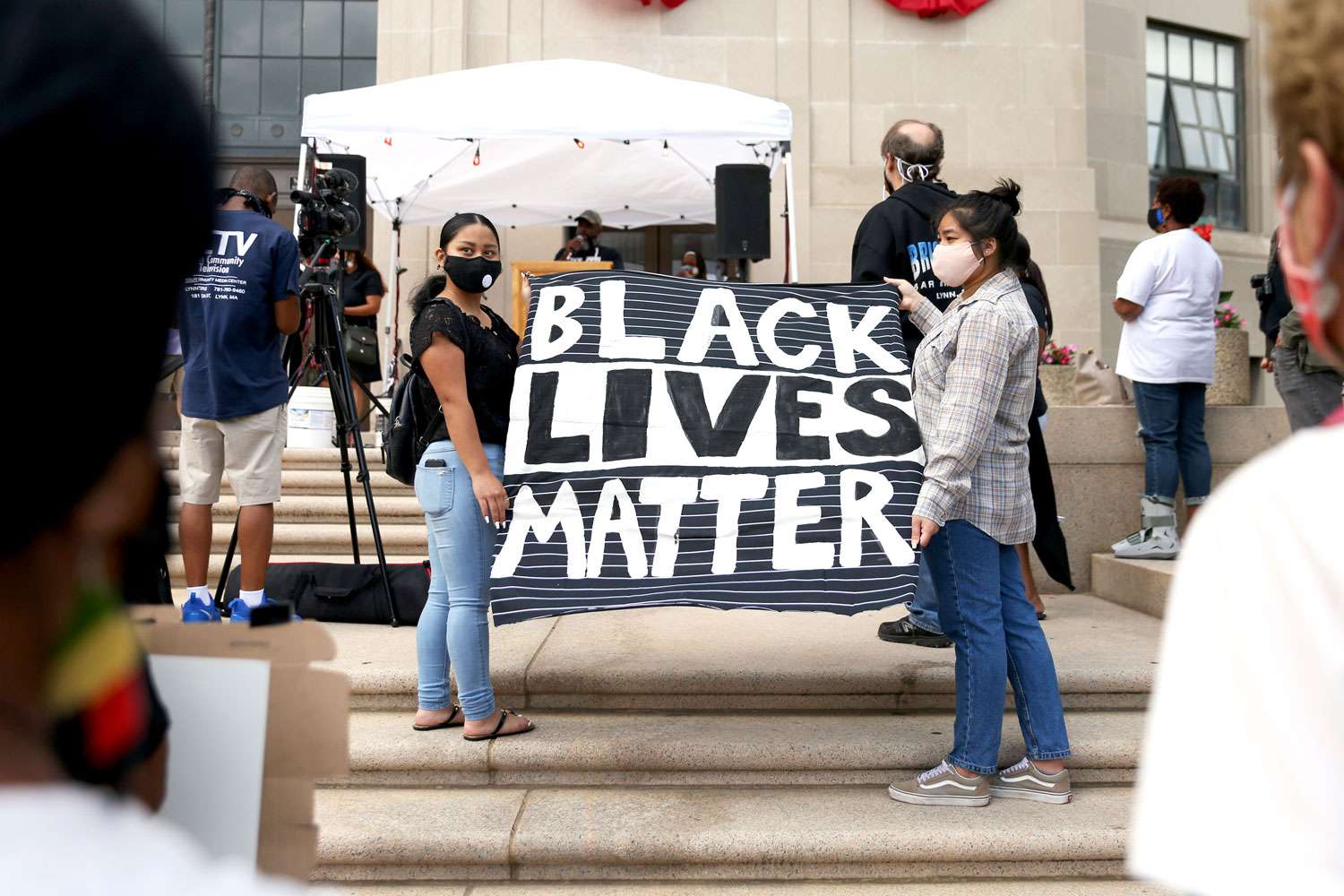LYNN — Despite pleas from residents and community leaders, the City Council voted unanimously Tuesday to pass the city’s $375.4 million budget for fiscal year 2021.
Some residents, who wanted the budget tabled to allow more time for input, spoke largely about wanting a 10-percent reduction in police spending. That money would be reallocated for an unarmed crisis response team to better reflect racial justice in the budget.
The budget includes a $2 million increase in funding for the Lynn Police Department.
Much of the evening’s public input consisted of calls from protesters into the meeting — broadcast virtually — from a community demonstration held outside City Hall during the session.
Mayor Thomas M. McGee started the meeting by requesting that the council approve a budget amendment to transfer $25,000 from the general reserve account to create an “Equity and Inclusion Assessment Account.”
McGee said the funds would support efforts aimed at ending systemic racism, promoting equity and inclusion, and including — but not limited to — exploring an unarmed crisis response unit.
“If the city receives additional funding from the federal government, as I mentioned previously we are hopeful will happen, I am committed to allocating some of those dollars to supplement this account,” said McGee.
McGee’s request, which was approved, came a day after he and some of the councilors met with representatives of the community groups involved with the protest to discuss their concerns.
But many residents were not satisfied and still wanted the budget to be tabled.
“We appreciate the down payment of $25,000 to continue to work on this plan but this moment calls for extraordinary action and we think you can take this action today,” said Isaac Simon Hodes, an organizer with Lynn United for Change.
Council Vice President Buzzy Barton said the city should be proud that the “difficult, yet necessary conversations about race relations and policing” have been conducted with civility, including during Tuesday’s budget hearing.
That said, Barton, who serves as chairman of the City Council’s Public Safety Committee, said he does not support cuts to the police department’s budget, but would be in favor of rethinking some aspects of the city’s police force, such as incorporating a community policing model.
“I am proud of the job the men and women of the Lynn Police Department do to protect our city,” said Barton. “Having said that, it would be a mistake not to take this opportunity to closely look at all aspects of the department, in the interest of enhancing the overall performance and solidifying the trust and respect of the community.
“I do not believe the most effective way to accomplish that is decreasing the budget for the Lynn Police Department. I would rather see the city work to identify additional funding that could be used to implement new programs that are seen as valuable by the community and the police department. The amendment to the budget is a step in that direction.”
The FY2021 budget, which represents a 1.5 percent increase over last year, includes cuts for every department, but no reduction in the city’s current workforce.
McGee said the budget was compiled without a firm sense of what the city would receive in state aid. Chief Financial Officer Michael Bertino assembled the budget using conservative state aid projections.
As a result, state aid makes up about 57 percent of the city budget, which is down from the 65-70 percent that is seen in typical years.
McGee said the COVID-19 pandemic has triggered an unforeseeable financial crisis nationwide, including in the city of Lynn, which resulted in a $7 million budget gap that had to be filled with some “difficult, yet necessary decisions.”
All vacant city positions were not filled and the city has implemented a hiring freeze.
“Each department is sharing in the sacrifice required to confront this dramatic, unexpected loss of revenue,” said McGee.
Sean Cronin, the state fiscal stability officer for the city, said there were some aspects of the budget that could be cause for concern.
He said McGee did not submit a Capital Improvement Plan, as required by the City Charter, and cautioned that if the city does not start increasing its commitment to capital now, it will not have the capacity to cover its share of a new school building.
In addition, he said there is some question as to whether the $166.8 million appropriation for the school budget will fulfill the city’s net school spending requirements.
He said that the city’s inability to meet its spending requirement in past years was part of what led to a $14 million budget deficit, which had to be resolved through a state loan.
“I don’t think the city wants to step backward and miss its net school spending requirements, which will just start the bad ball rolling again,” said Cronin.
Bertino acknowledged that none of the decisions that were made in this year’s budget were ideal.
“Sometimes you just need to make the best decisions you can for the city,” said Bertino. “Sometimes they’re popular and sometimes they’re not but like everything else, this will pass. We had to make the annual budget the best we could to preserve jobs and keep the city moving.”

